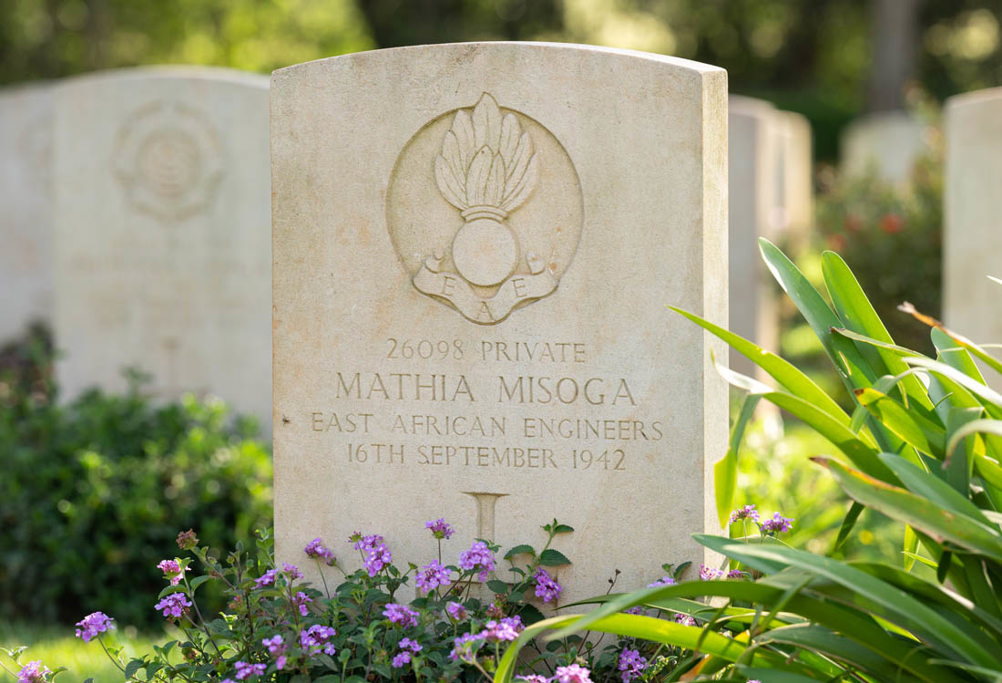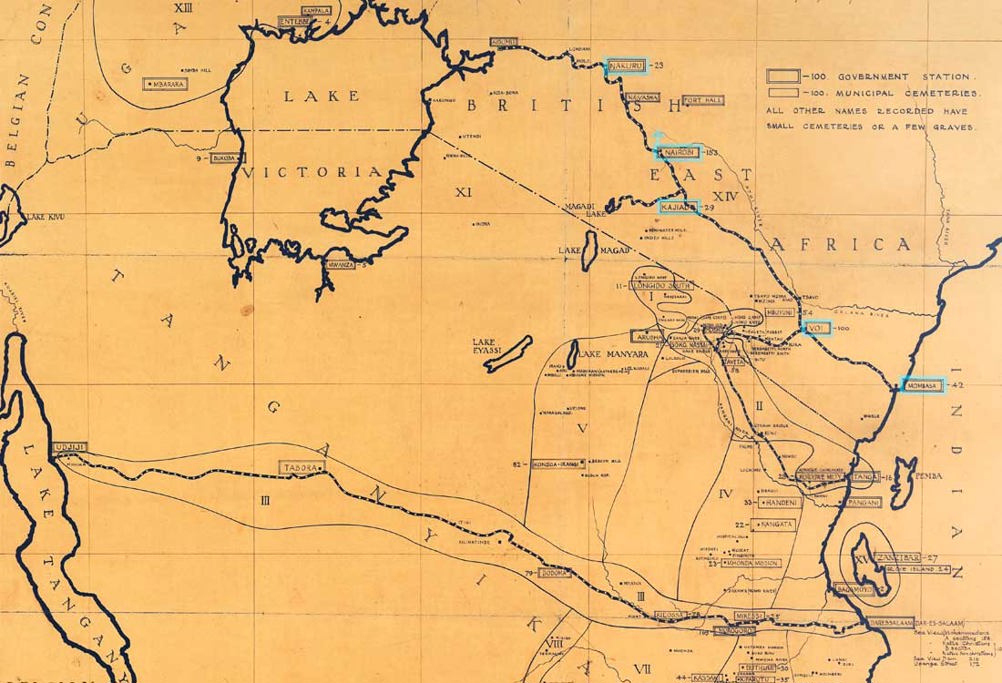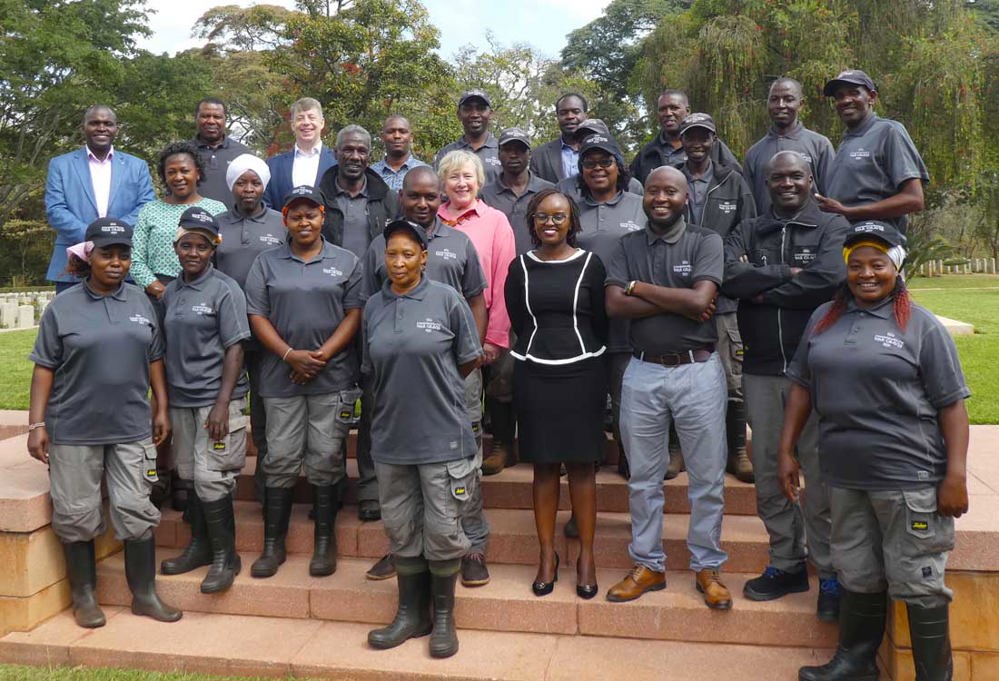The 2021 report and our response
This Special Committee was appointed to probe the early history of the Imperial War Graves
Commission (IWGC) to identify inequalities in the way the organisation commemorated the dead of the British Empire from the two world wars. On this page you can read and download the Special Committee’s findings, their recommendations and our response.

The IWGC (Imperial War Graves Commission) - now Commonwealth War Graves Commission was founded over a century ago to commemorate the First World War dead of the British Empire. From the outset the Imperial War Grave Commission’s work was defined by the principle of equality of treatment in death. Whatever an individual’s rank in social or military life, whatever their religion, they would be commemorated identically – with their name engraved either on a headstone over an identified grave or on a memorial to the missing. This report finds that, although the organisation upheld its promise of equality of treatment in Europe, this was not always the case for certain ethnic groups elsewhere.
This report estimates that between 45,000 and 54,000 casualties (predominantly Indian, East African, West African, Egyptian and Somali personnel) were commemorated unequally.
A further 116,000 casualties (predominantly, but not exclusively, East African and Egyptian personnel) but potentially as many as 350,000, were not commemorated by name or possibly not commemorated at all.

Although conditions and circumstances sometimes made the IWGC’s job difficult or even impossible, on many occasions differences in commemoration were avoidable. This report finds that the IWGC is responsible for these shortcomings – either because of its own decision making or its complicity in the decision making of other authorities. In certain circumstances the IWGC did not stand by its principles or insist upon them being upheld. This would not have happened in Europe.
Despite clearly making this argument, this report also shines a light on wider administrative errors and prejudiced attitudes that influenced or played a role in bringing about these issues.
Ultimately, many of these errors and attitudes belonged to departments of the British Imperial Government, including the War Office and Colonial Office.
Read the Special Report
The report compiled by the Special Committee is available to download as a PDF document:
Read the Non-Commemoration report Read the Non-Commemoration report - Swahili language version
The findings of the committee do not diminish the Commonwealth War Graves Commission's past achievements – of which we should be justly proud. However, we apologise unreservedly for the historical wrongs found in this report and for failing to live up to founding principle, of "equality of treatment in death".
Our response to the report
Claire Horton CBE, Director General, CWGC
The failure to stand firm and practice the ideals of equality of treatment for all in Africa and elsewhere in the 1920s and the 1930s was wrong then and is wrong now. The special report made 10 detailed and far-reaching recommendations, which we accept and have embraced in full. The recommendations have been implemented building on work already started some years ago and are still in train today.
All the recommendations are equally as important, and our priorities include:
Continuing the search for names
Adding newly found names to our records
A more flexible approach to commemoration criteria
Adding explanations and contextual information at relevant sites
Setting up an external expert advisory panel
Improving our transparency online
A cornerstone of everything that we do is the active involvement of, and engagement with, the local communities affected, ensuring whatever we do is of value to them and in keeping with what their wishes.
Read our response to the report Read our latest Progress Report
Read about our Non-Commemoration work and current projects
Press statements
Special Committee statement CWGC statement
Questions about the Special Committee
Below are some of the commonly asked questions about the Special Committee and the findings of their report. If you have any questions that aren't answered below, you can submit a question to us by using our enquiries form.
In November 2019 Channel 4 broadcast a documentary about the non-commemoration of war casualties in eastern Africa. The CWGC appointed a committee of independent experts and community representatives to help it analyse the history and produce recommendations to help shape the future work of the CWGC. The independent committee members were supported by CWGC commissioner Sir Tim Hitchens as committee chair. The report was researched, compiled and written by CWGC staff historians Dr George Hay and Dr John Burke.
The committee’s main finding was that not all casualties had been commemorated equally which was in conflict with the Imperial War Graves Commission’s founding principle that “all, whatever their military rank or position in civil life, should have equal treatment in their graves”.
The committee estimates between 45,000 and 54,000 casualties ((predominantly Indian, East African, West African, Egyptian and Somali personnel) were commemorated unequally. For some, rather than marking their graves individually, as the IWGC would have done in Europe, these men were commemorated collectively on memorials. For others who were missing, their names were recorded in registers rather than in stone.
A further 116,000 casualties (predominantly, but not exclusively, East African and Egyptian personnel) – but potentially as many as 350,000 – were not commemorated by name or possibly not commemorated at all.
Most of these men were commemorated by memorials that did not carry their names – in part because the IWGC was never furnished with their names or places of burial by the military or colonial authorities, in part because it chose to diverge from its principles in the belief that the communities these men came from would not recognise or value such individual forms of commemoration.
The report makes clear that there were several contributing factors – from practicalities on the ground during and after the First World War, to colonial administration, imperial attitudes and deliberate omissions those attitudes caused. It also makes it clear that the IWGC was responsible for – or complicit in – decisions that compromised its founding principles. Those decisions led to some of those who died in the war being treated differently and unequally. For that we are deeply sorry. It was wrong then and is wrong now.
In recent years, where issues have been identified CWGC has acted – most notably with new memorials in Hong Kong, the Middle East and Africa. Our work is constantly evolving, and we continue to add names to our records. But the scale of the task was not fully analysed until investigated by the Special Committee. Now that it is, we will act.
The Special Committee’s report makes 10 detailed and far-reaching recommendations, which we accept and embrace in full. We have already started implementing many of those recommendations, building on activities already put in train over recent years, to deal with issues of non-commemoration or partial commemoration. The report’s recommendations broadly fall into two camps – those that can be implemented quickly and those which require further work and investigation.
Although all the recommendations are important, we are prioritising several areas simultaneously, including:
- The addition of newly found names to our records;
- A more flexible policy to commemorative criteria;
- Contextual information at key sites;
- Further and ongoing research;
- Transparency online; and,
- Establishing an Expert Advisory Panel.


